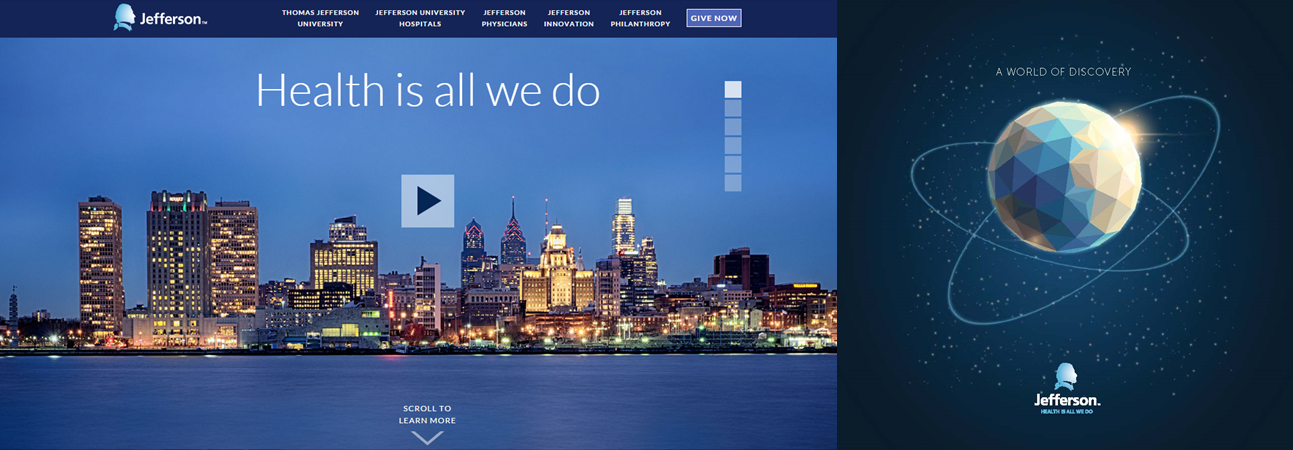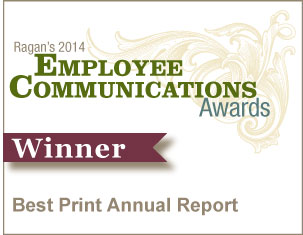Every word of annual report is meant to be read by doctors, nurses, administrators, and the public
Thomas Jefferson University and Hospitals put out a beautiful, interesting, and readable 2013 annual report. The report is aggressively optimistic, futuristic, and research-oriented. It works.

For decades, Philadelphia-based academic medical center Thomas Jefferson University and Hospitals was two separate institutions, the university and the hospital, each with its own agenda. Recently they decided to become more collaborative and more team-oriented—with each other.
They joined forces under a president and CEO, Stephen Klasko, MD, who came to his new job with an MBA. Following his vision, the communications, marketing, and creative services departments at the newly combined medical center produced an annual report for 2013 that sells the hospital/university on every page in energetic, plain English.
The marketing of Thomas Jefferson University and Hospitals is so interesting and attractive that the center’s report, titled “A World of Discovery Enterprise Report,” won the prize for Best Annual Report (Print) in Ragan’s 2014 Employee Communications Awards.
This annual report is exceptionally effective despite what it does NOT try to do:
• A remarkable marketing vehicle, this annual report carries virtually no patient stories.
• There are no case studies about how the new teamwork and the integrative medicine approach saved lives that 10 years ago would have been lost.
• There are no features about how new efficiencies from the combined operations of university and hospital eliminated waste, and saved time and money.
Despite the report’s creators denying themselves these staples of hospital and medical center brochures and patient-directed magazines, everyone—staff, the board of directors, department heads, doctors, government negotiators—raves about the report. This is why:
• It tells where the medical center leads in clinical practice and research and why in a plain, nontechnical, no-jargon style. The general reader is the sole target of the report’s makers.
• It sets out the institution’s legitimate claims to scientific and clinical practice leadership firmly and positively, without boasting or false modesty.
• It tells intensely interesting research stories, and stories about cures developed through research, that leave the reader wanting more.
The report received the ultimate tribute: Fans ask the communications and marketing staffs, “What [advertising, PR, or marketing communications] agency created your report?”
View More Employee Communications Awards 2014 Winners.
Visit Ragan.com/Awards to learn more about awards opportunities.


